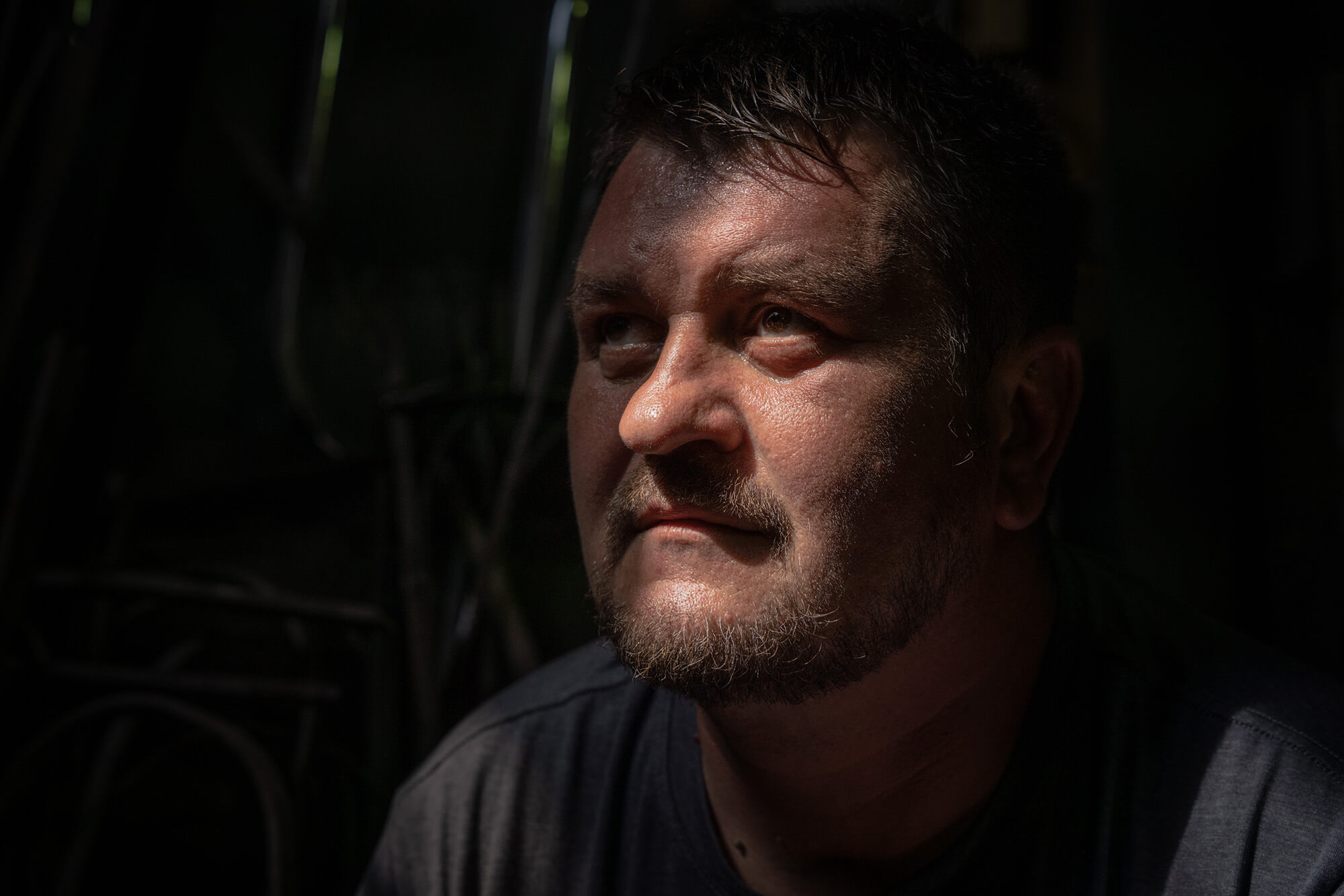
The Apple Orchard
It was not customary to whitewash tree trunks there. That is why the orchard with sun-drenched apples looked completely green from afar—except for a few fruits sparkling red on the branches. A summer apple orchard is not the best position for a sniper, but there was no choice: either you form a “sniper’s nest” as close as possible to the enemy or you simply will not reach the target.
In the early 1990s, there were street fights in Sarajevo. Ukraine was also involved in one of the most convoluted modern wars, which saw Croatia, Serbia, North Macedonia, Montenegro, Bosnia and Herzegovina, and Slovenia gain independence, and Kosovo become an unrecognized republic. From 1992 to 1997, about 14,000 Ukrainian soldiers took part in peacekeeping missions in the former Yugoslavia.
At the height of the battles in 1993, in a nest set up in the apple orchard, a 19-year-old Ukrainian nicknamed Kutuzov had no idea what the future held. Being a regular man from the Kyiv region, he had an SVD—a Dragunov sniper rifle, a youthful dream to accomplish something big, and an enemy sniper trapped in a building a few hundred meters away. Kutuzov stayed focused on the target for two hours, and as soon as he saw a shadow in the window of the building, he pushed the trigger. A bullet from his SVD cut through the air like a leather whip. The shadow fell abruptly. Life turned to death in just a few seconds.
“Kutuzov”
A council of doctors gathered in the freshly UV-cleaned office of the military hospital in Odesa. It is the mid-90s: this morning, a plane with Ukrainian peacekeepers who fought in Yugoslavia arrived at the military hospital. The wounded mostly have contusions, but there is a more serious case among them—a 21-year-old fighter with multiple shrapnel fragments lodged in his chest from an RPG, a hand-held anti-tank grenade launcher.
“We have only one option,” the seemingly senior doctor is examining the X-ray, “to perform urgent surgery: break the ribs and get it all out as soon as possible. If the shrapnel—look where it is now—starts moving, it could reach the heart.”
A few walls away from the office where his future is being decided, Sasha nicknamed as Kutuzov, that same 21-year-old peacekeeper, is smiling and cheerfully talking to his mates in the hospital ward. He was injured three times while carrying out missions in Yugoslavia. A gunshot wound that he recovered from quite easily, as the bullet first went through a board and so hit his leg at a much lower speed. A shrapnel wound he received when he and his brother-in-arms struck a Soviet TM-62 anti-tank mine and miraculously survived. And now, having been hit in the chest by RPG shrapnel in close combat.
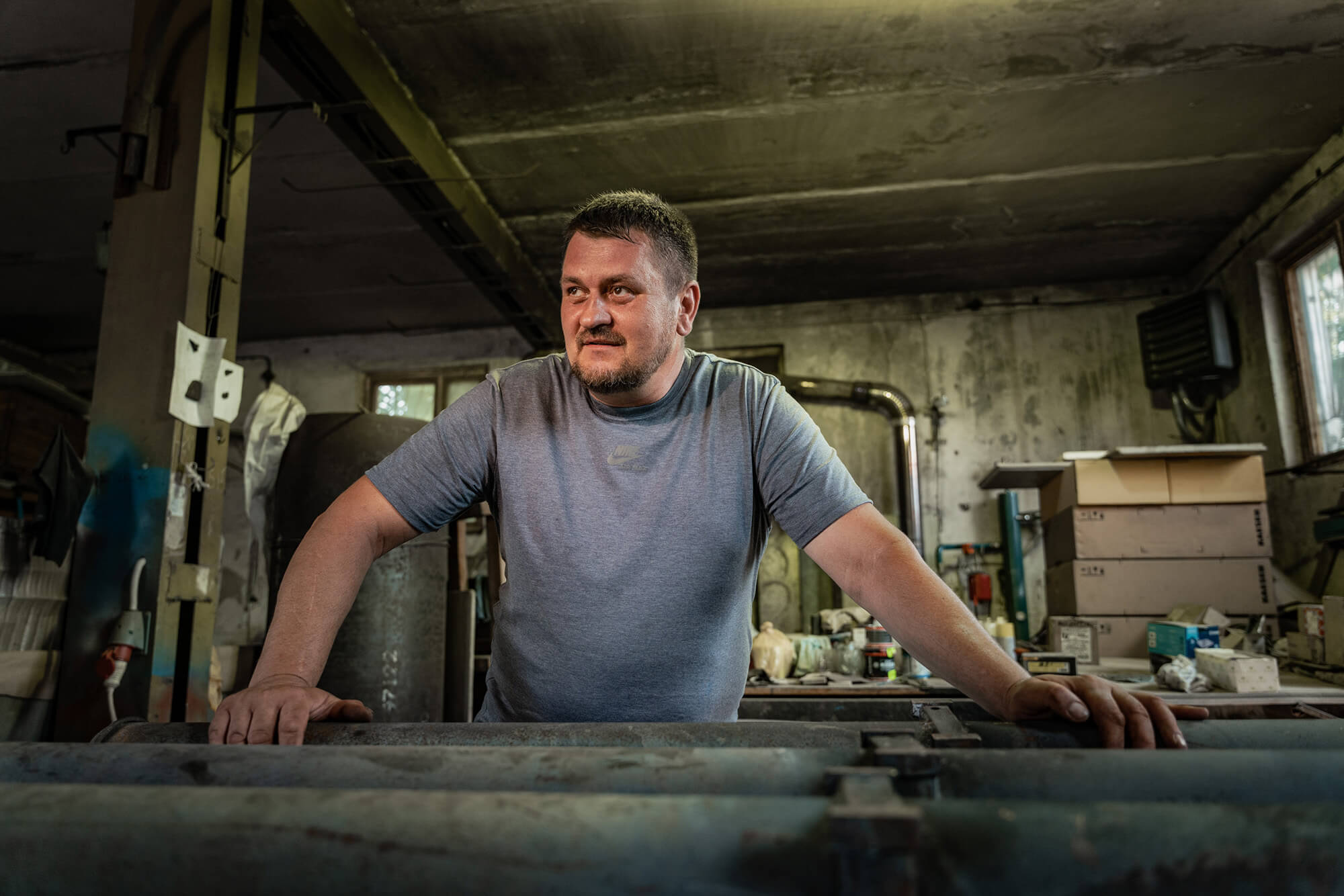
“Tell me, do you ever part with your terry cloth towel? Why are you constantly holding it to your head?” the grey-haired Second World War veteran held back for half a day from asking Sasha this question, who is lying on the bed opposite.
“Damn it. . . Ouch,” Kutuzov demonstratively clenches his teeth as he answers. “It’s just that I have a very bad headache. And a wet towel helps reduce the spasm.”
In addition to the shrapnel in his own body, the boy brought another trophy from Yugoslavia—a Stechkin 9 mm automatic pistol. So that the weapons would not be confiscated during the evacuation and later in the hospital, Sasha wrapped the gun in his terry towel—no one would think of checking a wounded soldier. Just as the peacekeeper himself did not think that the events in Sarajevo would change him forever.
A few years earlier
“Oh my God!” a woman in a flowery dressing gown is standing in the yard of her own house holding her head with both hands. Still young, but already with noticeable wrinkles in the corners of her eyes, she is about to faint from confusion.
“Son,” she turns to the lanky young man standing next to her, “What’s going on in your head? Where did you get this Volga from?”
18-year-old Sasha is leaning on the hood of the car and instead of answering, just smiles. Some three days ago, he enrolled on the first course at the Institute of Communications in Kyiv, but today he has dropped out and instead of going to class, he got a job as a driver for the car fleet director.
“What? Ma, everything is fine,” he giggles. “The car is just the beginning. You’ll see, one day you’ll be proud of me!”
Never a shy person, Sasha has come home to Obukhiv to show off. This white Volga, as well as the ability to smile when others are feeling tense, came hand in hand with his new boss—a person who, intentionally or not, will play a crucial role in his life.
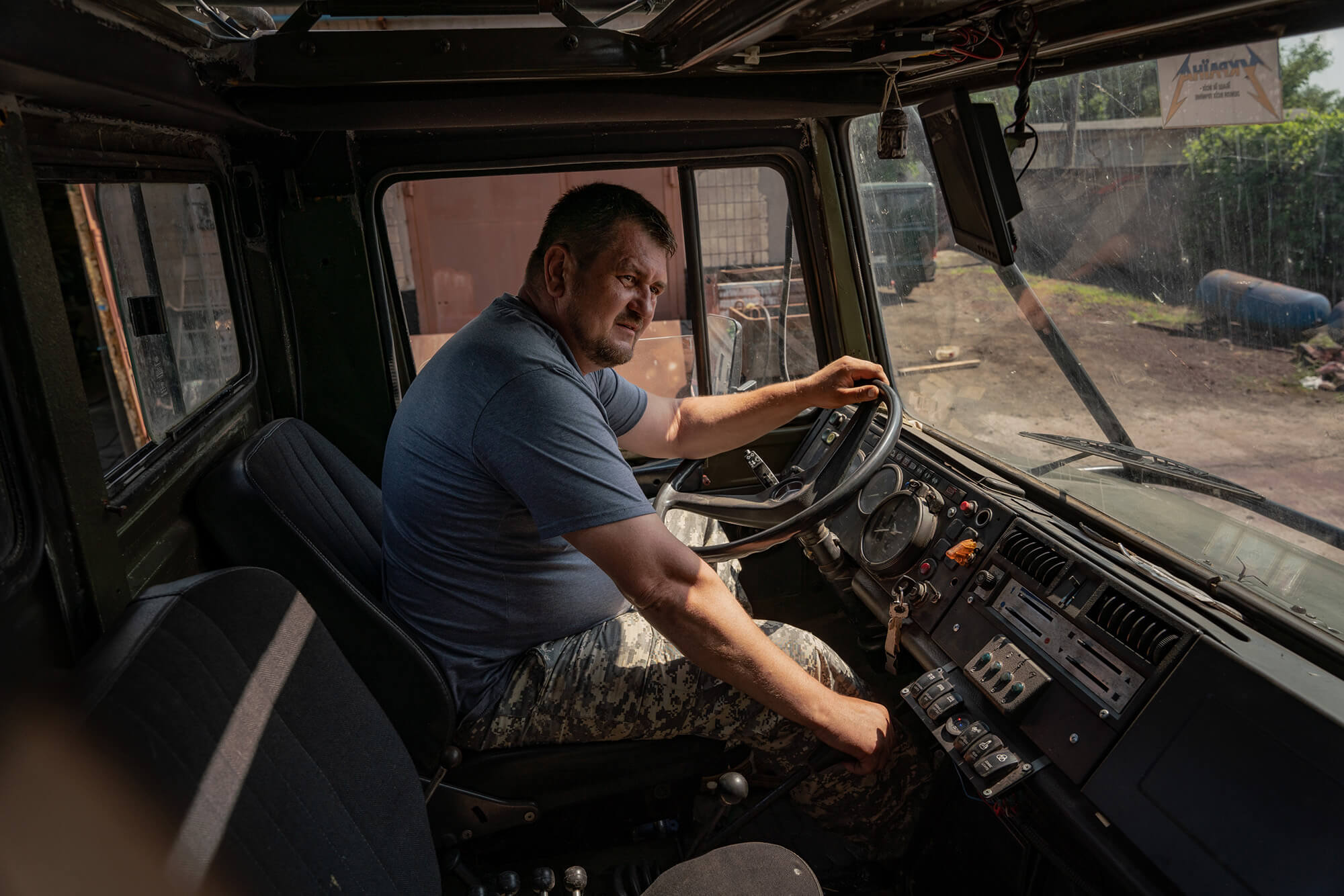
Standing in front of his confused mother by his parents’ house, Sasha has not yet been given the nickname “Kutuzov,” although he knows full well why this nickname runs through his family.
In early 20th century, one of his relatives, grandfather Ivan, was a trader in Moscow. Times were bad, so the man was selling meat of dubious quality from Ukrainian farms. It seemed that this was exactly what the Russians should have noticed, but instead grandfather Ivan got into trouble when he decided to relieve himself in the bushes near the Red Square. According to the family legend, he was attacked by ten policemen at once: The grandfather, mad as a hatter, beat them with his galosh and knocked almost all of them to the ground, but then he ran out of breath, gave in and was taken to “kutuzka” [a slang word for slammer—R.]—which turned out to be a mental hospital. That’s how grandfather Ivan and then his children and grandchildren went by the name Kutuzovs.
A ticket to war
At first there were dreams. Very realistic and creepy every time. Here is the nest, here is the trigger, and here is the shadow in the window of the building across the street, where the enemy sniper is lying in wait. An exhale—and Kutuzov sees a bullet fly from his rifle in the dream, and then the shadow abruptly falls dead.
The first year after returning from Yugoslavia was the most difficult for Sasha. He should have been happy that he’d survived after three injuries, that his pregnant wife was by his side, and that he had the driver’s job he enjoyed. But nothing was making him happy: Every night he would go back to the apple orchard and every morning he would say: “Lord, when will it finally end?”
The man couldn’t collect his thoughts: He wondered if he had done the right thing when he became a peacekeeper, if he should have tried to graduate from the Institute of Communications, and if he did the right thing lying to his mother for the sake of his big dream.
The fact is that in the 90s, when Kutuzov was going to go Yugoslavia, the law forbade young men under the age of 21 to participate in military operations. The exception was boys whose parents gave their written consent to the enrolment of their sons. Sasha’s family would never do anything like that, so the only adult who agreed to this crazy scheme was Kutuzov’s boss. A burly man, once also romanticized by war, felt sorry for Sasha’s broken dream. He stamped and signed the assignment document: a ticket to war was ready in less than a minute. Kutuzov will always remember the day when he lied to his parents that he was going to study at the Maritime Institute in Mykolaiv, and instead packed a bag and went to the military unit with a letter from his boss.
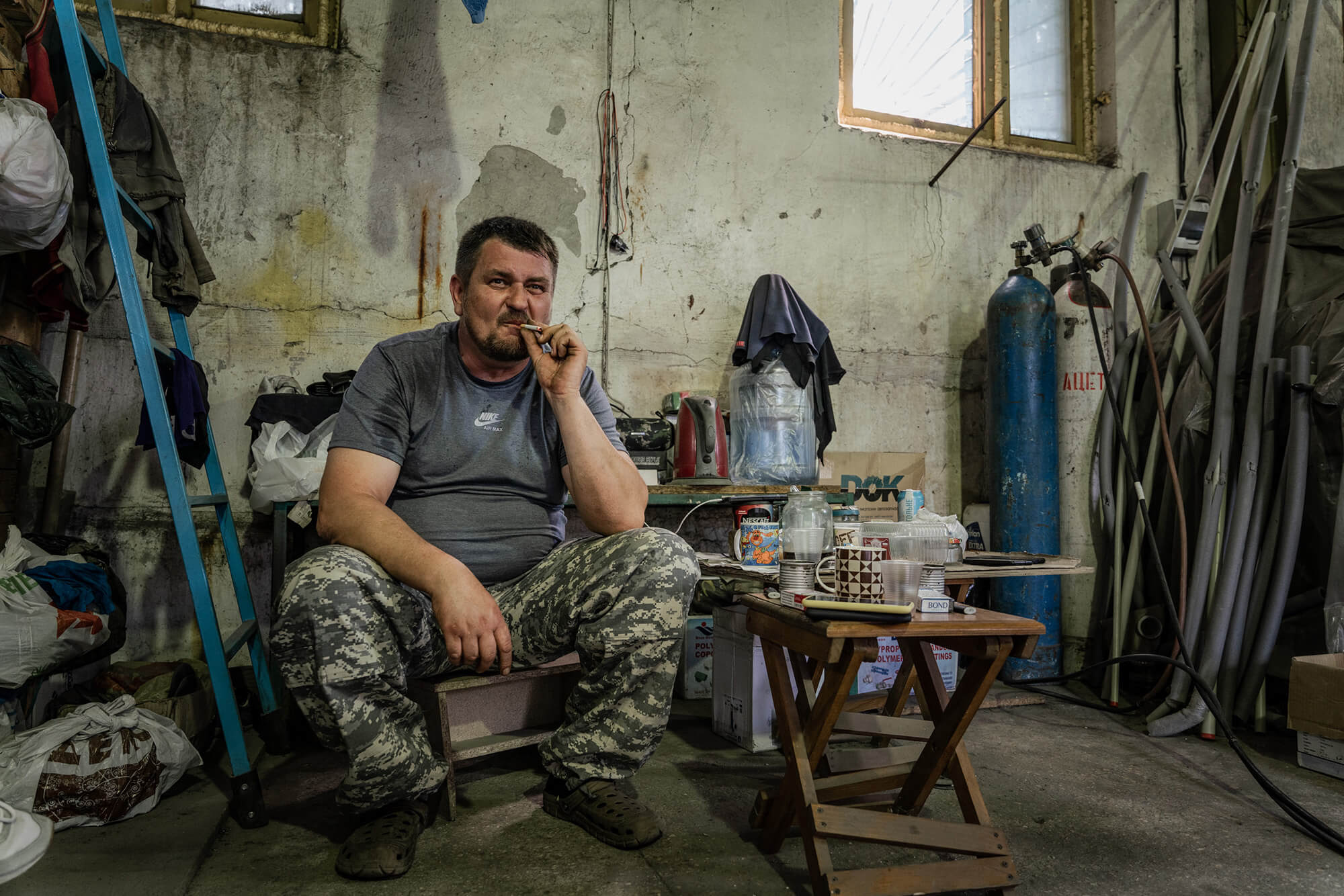
The operation in Sarajevo, a before and after event in Sasha’s life, was devastating for the Serbs. The building where their sniper was hiding was cleared by the allied forces in literally 15 minutes. With his head held high, Kutuzov was one of the first to go inside—he wanted to look at the enemy he had shot. However, during the sweep, the enemy sniper was nowhere to be seen. Instead, they found the body of an 8-year-old local girl lying on the floor. In the 1990s, nobody could have known that over 100,000 civilians would die in the Bosnian wars, and that Serbia would be accused on many occasions of using human shields.
When the war broke out at home
Every time it rains, the military town in Bashkyrivka in the Kharkiv region turns into a kind of Fort Boyard. However, instead of gold coins as a reward for overcoming obstacles, here you can have, for example, a hot shower. The rules are quite simple: wear a bulletproof vest and a helmet, and spend the whole day wading through the mud, shoot at the range, somehow make it back to your 20-person tent, and then, exhausted, find your folding bed, knock the clay off your boots and get in line for the field bath.
It’s 2015. A few months ago, the 40-year-old Kutuzov, voluntarily mobilized with the 25th Detached Motorized Infantry Battalion “Kyivska Rus,” broke out of encirclement in Debaltseve. In the town, a transport hub, Sasha and his comrades held positions near the railway tracks, which eventually turned into both the road of life and death: the Russians entered Debaltseve using this route, and by the same route our soldiers escaped the encirclement. Along with now his own war, Kutuzov faced new life tragedies. Instead of street fighting in Sarajevo and serving as a sniper, he became first a driver in the Armed Forces of Ukraine and then a mortar platoon commander.
Between practice shootings and incredible fatigue after the battles for Debaltseve, the soldiers at the training ground were not very talkative. Everyone was going about their own business, “collected coins for a hot shower” in the evening, and in the morning was straight back to the usual military whirl. However, Kutuzov, whose chest still contained some shrapnel from the “Yugoslavian” RPG, had not lost his zest for life at all. Despite the contusions, battles and training ground routines, he sought new and interesting acquaintances. He said that people make him more whole as everyone has their own unique values.
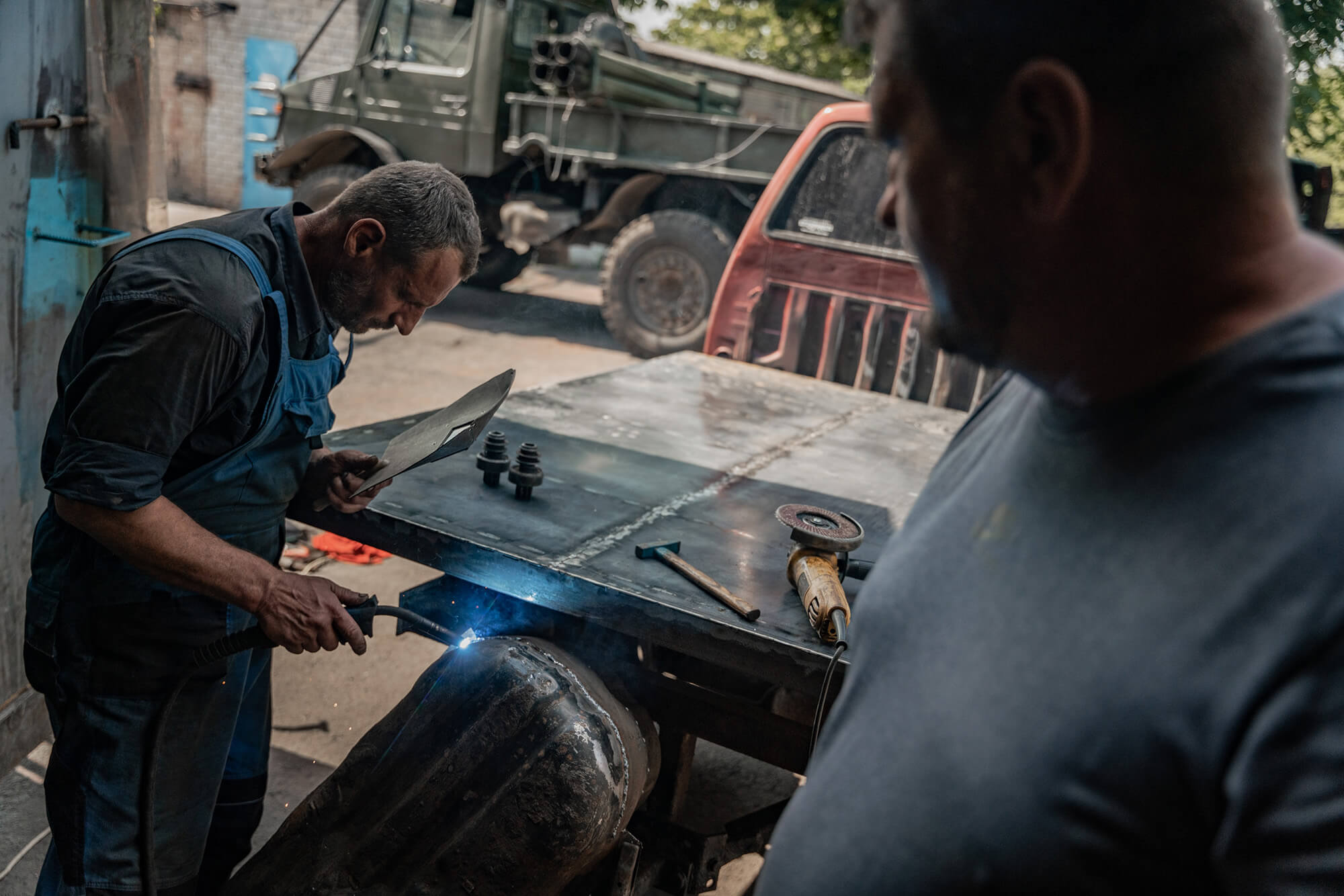
The unit sniper nicknamed as Hans thought the same way. Although he was not originally from Obukhiv and did not fight in the “Kyivska Rus” battalion, for some reason he immediately noticed Kutuzov: he greeted him, smiling, and looked for anything in common to strike up a friendship. Both open and sincere personalities, the men became close friends in no time: they would walk around the training ground and talk for hours about everything. The only thing they avoided was the topic of service, saying that “there is plenty of cammу in life already.”
However, one day the emphasis of their conversations shifted. Once, when spending an evening outside the military town, Hans had had one too many: sweaty, tense and visibly angry, he suddenly started shouting: “We are the wolves! The Royal Wolves!”
From 1992 to 1993, a similarly-named unit took part in the war in Yugoslavia: it was a team in the RVU-2—the Russian volunteer force. The deputy commander of the Royal Wolves was Ihor Hirkin (Strelkov), one of the main leaders of the militants in Donbas and an ideologue of the so-called Novorossiia. Under his leadership, the Russians occupied Sloviansk and Donetsk in 2014. And in the 90s, they fought for the Serbs in the Bosnian War. Officially, the Royal Wolves existed for only one year, but other monarchists liked the name so much that it was used until the end of the wars in Yugoslavia.
“I was supporting the Croats!” Kutuzov shouted, overwhelmed with anger. He hit the wall with his fist as hard as he could, and then he stopped—he knew: just like his grandfather Ivan on the Red Square, he would fight for his cause to the last breath.
Hans seemed to expect this reaction: the sniper fell silent and looked down. The other soldiers, as if under order, also fell silent. The place where, just a few minutes ago, people could not hear their own thoughts, was silent as the grave.
“Come on, buddy!” one of the soldiers finally said, daring to pat Kutuzov on his shoulder. “It was a long time ago. Now you and Hans are on the same side.”
After the dispute in the bar, the soldiers spoke only once. After his demobilization Hans did not return to the army and visited the front as a volunteer. In the summer of 2017, he went to Zolote located in the Luhansk region, where Kutuzov’s unit was based, to finally speak his mind. When he saw Sasha, he didn’t mince his words: “I was in that apple orchard too.”
It turned out that the sniper was not just fighting for Russian mercenaries on the Serbian side—he had seen Kutuzov through his own optical sight in Sarajevo in 1993, but could not pull the trigger because of the fear and shame he felt. Hans already knew then that in the building opposite another member of the Royal Wolves was planning to retreat, letting the child go ahead.
In the 90s, young Hans romanticized war. He could not have known that in 2014 his former commander would lead the occupation of Donetsk and Sloviansk, and in 2022, the people he fought with side by side would launch a full-scale invasion of Ukraine.
Conscience
An old black SUV is speeding down a shell-torn road somewhere in the Donetsk region. At high speed, it seems to be repelling with its rear wheels from the dirt road, bouncing over the deep shell craters. Now, in 2022, when evacuating the wounded, speed is one of the main success factors. 47-year-old Sasha, nicknamed Kutuzov, is pressing down hard on the gas pedal. Under mortar fire, the car is flying down the road, leaving a red whirlwind of dust in its trail.
“Look,” Kutuzov says, whilst remaining focused on the road, “in a few minutes we will reach the house with those WIAs: anyone who can walk should run up to us on their own, we will carry the rest. And as for you, keep out of this for now—examine the men on the way back, okay? So that we don’t waste any time on the ground. However, if there are any complicated cases, then, of course, we will react according to the situation.”
In the back seat of the SUV, Sasha’s female comrade is listening to him attentively—she is a medic from the “Kyivska Rus” mortar platoon unit that Kutuzov has been leading for more than six years. According to the rules of war, these two should not have been responsible for the evacuation, but now, according to the rules of humanity, there was no other option: as soon as they heard on the radio that the neighboring unit, which included mainly mobilized people, needed help, the platoon leader and medic made their way straight there.
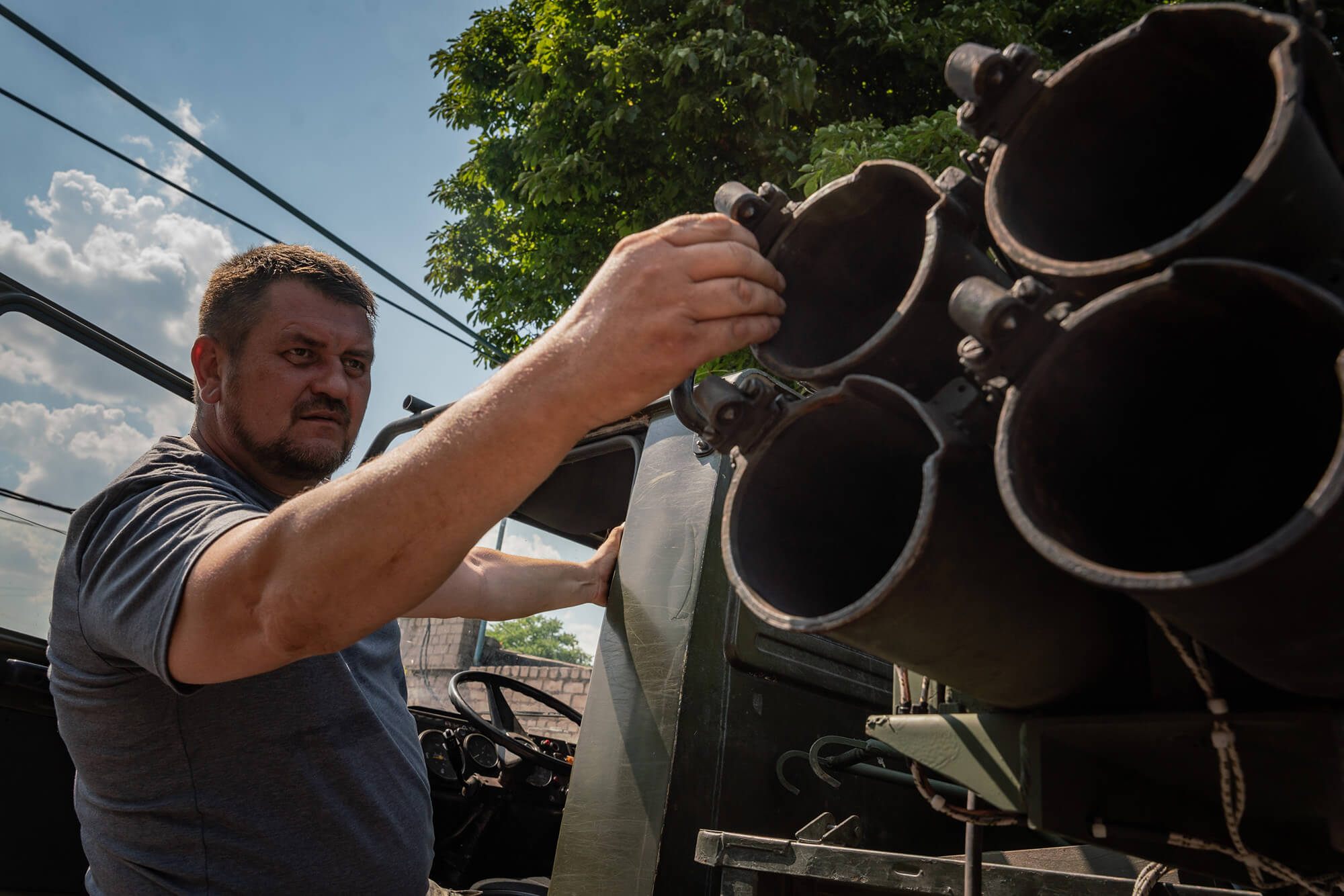
“I have been working as a driver for half my life. And since 2014, I have got to know the east quite well. When someone needs to be quickly taken out, I try to drive myself. It is better than worrying about my subordinates. It is easier for me: a few seconds later and all the wounded soldiers are all set to be taken to the hospital.”
Half a year has passed since February 24, when Russia began its undisguised invasion of Ukraine. Kutuzov and his soldiers evacuated several dozen wounded soldiers from nearby positions in the Donetsk region, did not lose a single person from his platoon and, unlike some other army men, never withdrew from the positions held even under the pressure of enemy airstrikes.
In high spirits as always, with a tanned face and rivers of sweat on his forehead, today Sasha meets me in one of the towns in the Zaporizhzhia region. Here, on the grounds of a former industrial plant, he has been “twisting the nuts” for the past few days from morning to night, assembling a home-made mobile MLRS called Partyzan from a trophy Russian Grad multiple-launch rocket system.
Sitting next to a huge machine, he smiles, “Brother of the 92nd brigade’s commander asked me to come here. Fedosenko, do you know him? He is such a good man, the right man. And he said: ‘Kutuzov, come and see how my men assemble their own ‘Partyzan.’ Maybe you can help them do it right.’ And I said: ‘Sure, I’ll come, if you help me weld one for myself.’ My previous system, you may have heard, was destroyed by the bastards this spring during the fighting, so I was looking for a new one.”
The “Partyzan” systems were in fact made during the Chechen wars, but Kutuzov was the first to start making them in Donbas. The idea of welding 122-mm trophy Grad guide tubes to a portable tripod or right to the bed of a pickup truck was suggested by his friend Andrii Moruha, an artillery instructor from the Come Back Alive foundation. At first, Kutuzov accepted the challenge rather than actually deciding to make a mini-MLRS, but after dozens of unsuccessful tests of the self-assembled “Partyzan,” one day he finally exclaimed: “Oh, wow! I couldn’t believe that it worked! And it can shell the holy fuck out of the enemy!” More than five years later, he is making mobile MLRSs not only for himself, but also for other units. He says that his role is to be as useful as possible in war—that is why he does what his conscience prompts him to do, not what the army regulations say.
“I just know,” he sighs, “that a platoon that is not required to have battalion and brigade-level weapons can be very, very effective, if properly commanded. The main thing is to think about the people, you know? About the people and your country. To think: how exactly should I, as a military officer in my position, act to bring our victory closer? Every action must be meaningful, you know?”
His own meaning, which Kutuzov has been sticking to at war for the ninth year in a row, in fact, was not formed as easily as it might seem from his words. Similarly to the way he is welding his “Partyzans” now, his motivation to constantly renew his contract with the Armed Forces and so expose himself to danger every day Sasha welded, in particular, out of a desire for redemption for the mistakes he made when he was young, and his confidence that experience gained in one war can be put to use in another.
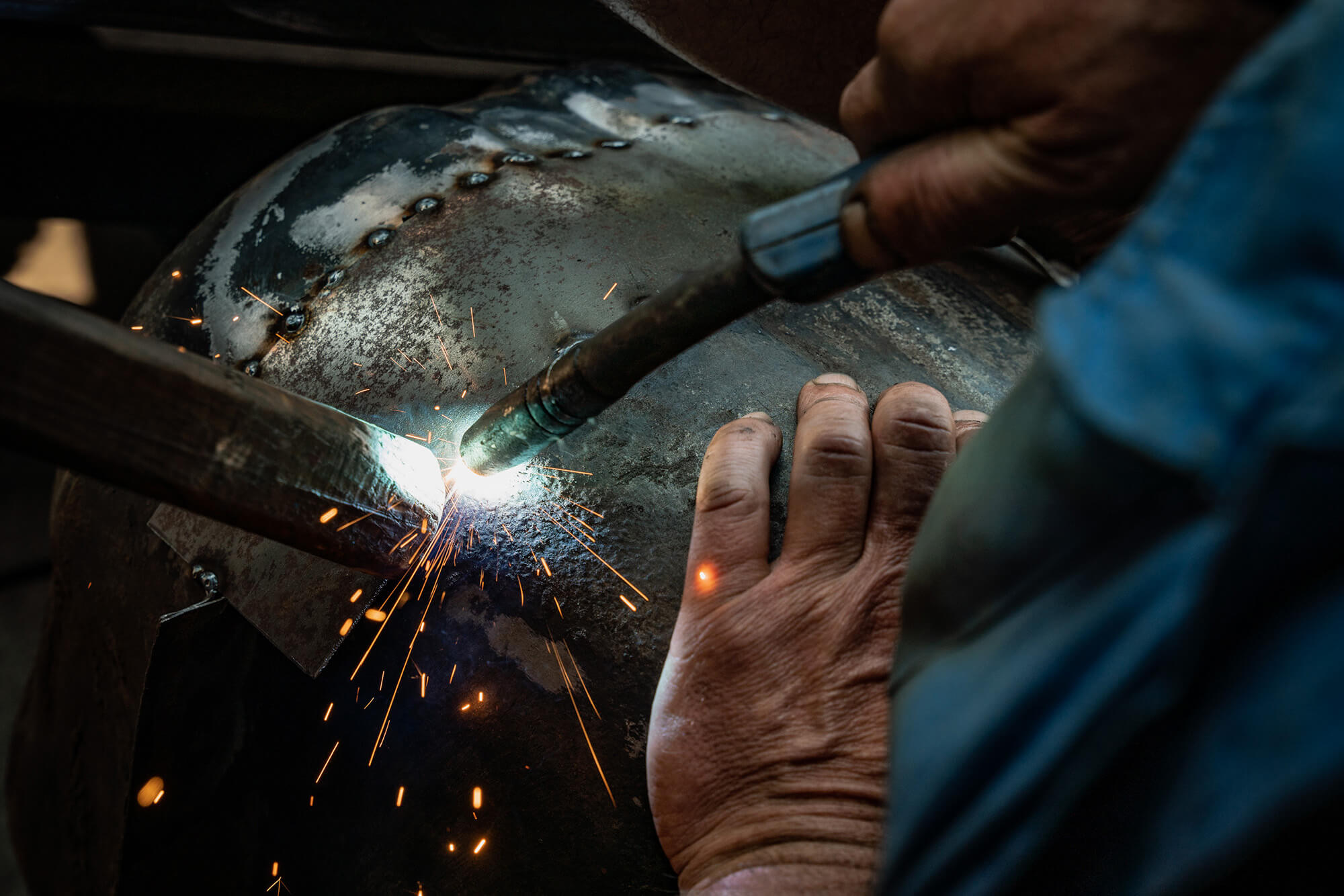
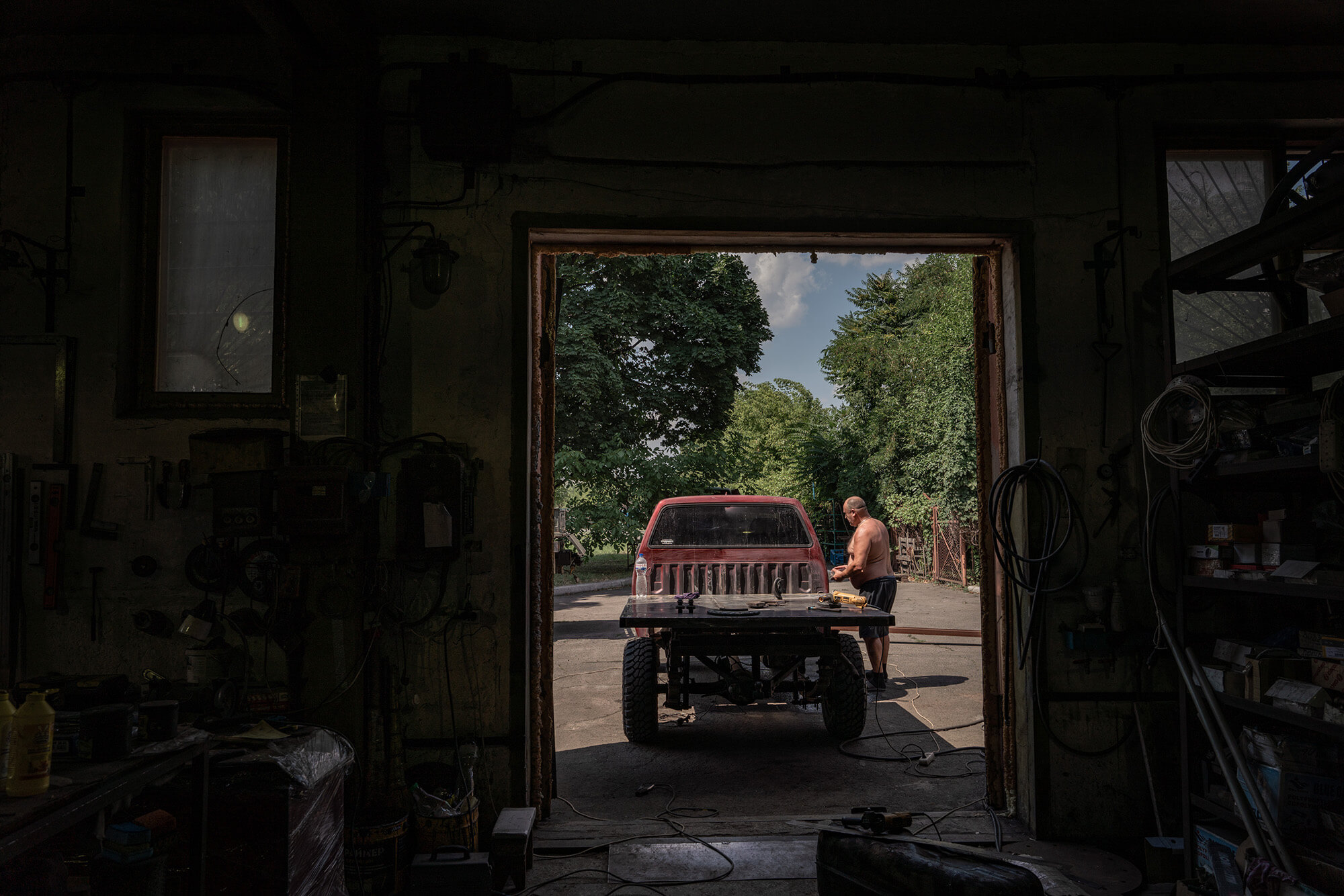
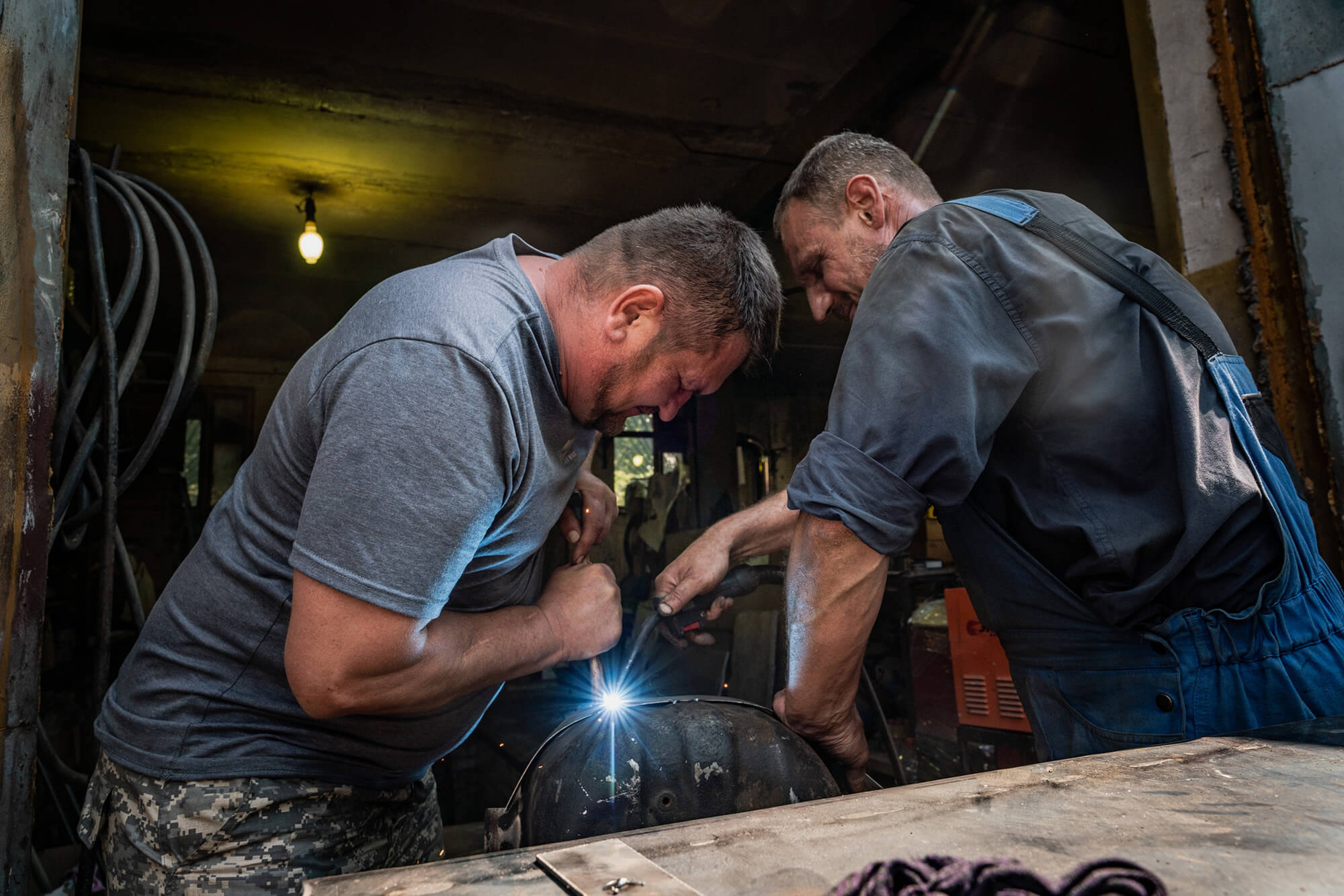
During mobilization, Sasha, now the mortar platoon commander, met a slightly younger Major Oleksandr Rachynskyi in the unit. Patriotic namesakes, both from the Kyiv region, whose wives, by coincidence, also work together—in peace time, the two families would definitely have been friends. But instead, their families now share grief—on November 17, 2014, Rachynskyi died from wounds in a Kharkiv hospital. And a few weeks before that, he told his brother-in-arms that he had gone to war to see our victory.
“When we were saying goodbye to Sasha,” Kutuzov starts whispering, “I was prompted to say something. I stood there not knowing what to do, and then I remembered his phrase about ‘seeing our victory.’ And suddenly my heart skipped a beat. I decided for myself and told everyone there and then—I will fight for both of us. Until victory.”
The mortarman has been on the front line since 2014 not only because of his fallen comrade, but also, as he says, as a matter of conscience and principle—to make sure that his son and daughter can live in a world where there is neither war in Ukraine nor any peacekeeping operations abroad.
“As for me,” Kutuzov rubs his hands greasy from oil together, “it is not only memories that remind me of the past. One of the “Yugoslavian RPG” fragments that was moving towards my heart encapsulated. It’s too risky to try taking it out. I don’t keep a count of how many contusions I’ve got in Donbas. All small things, such as fractures. I don’t want my children and grandchildren to have to go through what I have. Now we will defeat the Russians, and then it’s over. I will go back to my job as a driver. Or will work in a garage—at the most.
Have read to the end! What's next?
Next is a small request.
Building media in Ukraine is not an easy task. It requires special experience, knowledge and special resources. Literary reportage is also one of the most expensive genres of journalism. That's why we need your support.
We have no investors or "friendly politicians" - we’ve always been independent. The only dependence we would like to have is dependence on educated and caring readers. We invite you to support us on Patreon, so we could create more valuable things with your help.
Reports130
More






